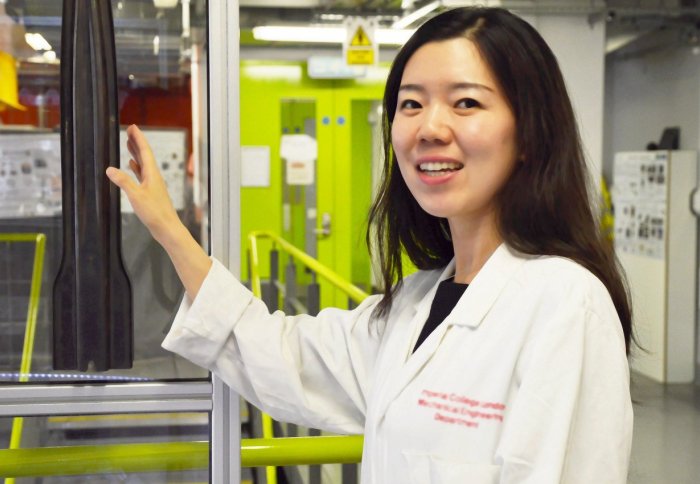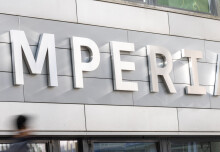
Dr Nan Li

An Imperial engineer has been nominated as one of the top 50 women in engineering.
Dr Nan Li, from the Dyson School of Design Engineering at Imperial College London, has been chosen by a panel of experts as one of the top women under 35 in engineering.
The list, which features in today’s Daily Telegraph, is part of the International Women in Engineering Day 2017 celebrations (23 June). Nominees were chosen by a judging panel from the Women’s Engineering Society.
Colin Smith caught up with Dr Li to find out more.
Can you explain what your research is about?
I am developing new technologies for the design and manufacture of high-performance, lightweight vehicles, which will have a more environmentally-friendly footprint.
Can you give me an example of your work?
Collaborating with Lotus, Fiat, and eleven other industrial partners across the automotive manufacturing supply chain, I have developed low-cost aluminium hot stamping technology.
The technology reduces the amount of materials and energy needed to produce car parts. The process also manufacturers to reduce the amount of parts they need for cars. Fewer parts make cars lighter, meaning they could be more fuel efficient.
We envisage that the use of lightweight stamping technologies on the car body and chassis structures could achieve around a 40 to 50 per cent in weight reduction. This would result in 20 to 25 per cent fuel-savings and a 28.6 to 35 per cent reduction in CO? emissions. This technology could extend the driving range of electric cars by around 30 per cent, before they need refuelling.
Why do you think you made the list?
Firstly, I am really flattered to have made the list at all.
Like most early-career academics, I have been working really hard on all the aspects of my job. For example, I’ve contributed to ten patented technologies. I’ve published 23 papers in refereed international journals and given a range of presentations at international conferences.
Other reasons might include that I’ve also been building up strong industrial links with companies like Tata Steel in the UK and Aisin Takaoka in Japan. I have also been working on large-scale European projects. For instance, I am the executive manager for a €6 million EU Project, consisting of 16 partners from eight countries, where we are applying our high-strength aluminium forming technologies to the manufacturing process of low-cost vehicles.
How do you think engineering is changing for women?
Increasingly, there is a higher level of automation and digitisation in many engineering industries. For example, in manufacturing, robotics has replaced many dangerous, heavy manual roles. Work has now shifted to operating machinery via computers, providing more opportunities for both genders to do those roles.
What hurdles do you think society needs to overcome to get more women into engineering?
In my view, the main hurdle is getting people to understand just how rich and diverse engineering as a profession now is. Many people think of engineering and they think “heavy industry”, which equals physically intensive work. However, technological advancements have really widened the scope of what an engineer can do.
To get more women into engineering I think a more consistent and sustained effort needs to be done to promote engineering to girls at an early stage so that they can find out how engineering has the ability to improve all our lives.
I think Imperial and other universities’ student outreach programmes are very valuable in connecting young women with academics and practitioners and introducing an insider’s perspective into engineering as a career. However, there’s a lot more that can be done by both public and private institutions to encourage women to enter the field.
Why did you want to become an engineer?
Being appointed a lecturer at Dyson School has been really rewarding. Transportation is so vital to our modern lives. We’ve never been more mobile and this provides us with many opportunities. Developing technologies for more energy-efficient and affordable vehicles means that we could deliver significant positive impacts to society, the environment, and the economy. I love seeing the technologies I develop being used in the real world. It is very satisfying.
Article text (excluding photos or graphics) available under an Attribution-NonCommercial-ShareAlike Creative Commons license.
Photos and graphics subject to third party copyright used with permission or © Imperial College London.
Reporter
Colin Smith
Communications and Public Affairs

Contact details
Email: press.office@imperial.ac.uk
Show all stories by this author




Leave a comment
Your comment may be published, displaying your name as you provide it, unless you request otherwise. Your contact details will never be published.